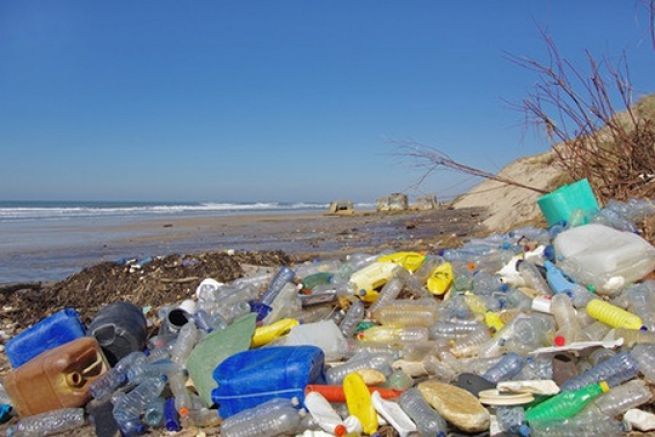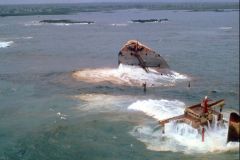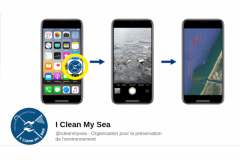This report, "The New Plastics Economy," is the result of a three-year effort led by the Ellen MacArthur Foundation, in partnership with the World Economic Forum and supported by McKinsey & Company. It was released Tuesday by the Davos Economic Forum.
The use of plastics is a ubiquitous material in the modern economy. Their use has increased tenfold in the last 50 years and is expected to double again in the last 20 years. 32% of plastic packaging escapes the collection system, generating significant economic costs and reducing the productivity of vital natural systems such as the ocean.
Plastics materials and packaging are an integral and important part of the global economy. Plastic production has surged over the past 50 years, from 15 million tons in 1964 to 311 million tons in 2014, and is expected to double again over the next 20 years. More than 40 years after the first universal recycling symbol was introduced, only 14% of plastic packaging is collected for recycling.
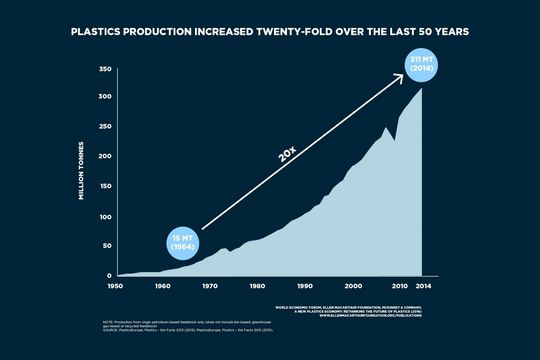
Every year, at least 8 million tons of plastics leak into the ocean - the equivalent of emptying the contents of a garbage truck into the ocean every minute. If nothing is done, this is expected to increase to two per minute by 2030 and four per minute by 2050. And plastic packaging accounts for the largest share of this leakage. Today, according to available estimates, there are over 150 million tons of plastic in the ocean. By 2025, the ocean is expected to contain 1 ton of plastic for every 3 tons of fish, and more plastic than fish by 2050 (by weight).
The current system of production, use, and disposal of plastics has significant negative effects: $80 to $120 billion worth of plastic packaging is lost each year.
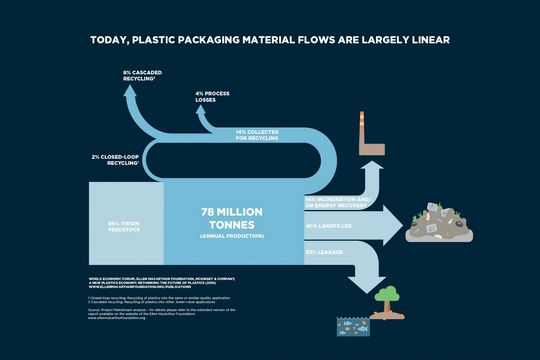
It is therefore important to completely redesign packaging and plastics more globally. It is also necessary to find an alternative to oil as a basic material for their production, because in the current state, the sector will consume 20% of oil production in 2050.
The sailor proposes to implement a circular economy, reusing materials and reviewing her recycling method.
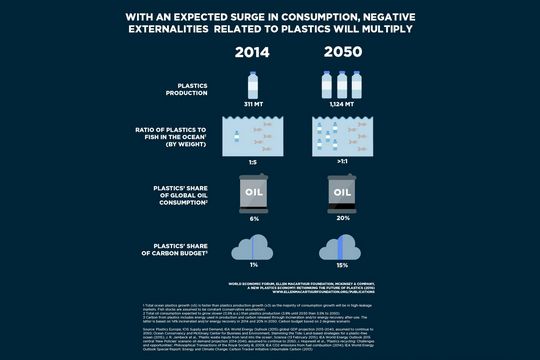
Reduce or ban the use of plastic bags
In France, single-use plastic bags should be banned from March. In the United Kingdom, plastic bags are charged. The goal is to reduce the number of bags distributed by 80%, currently 7.6 billion, or 140 bags per person per year. In Montreal, the use of non-biodegradable plastic bags will be banned starting in 2018.
